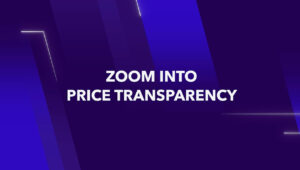Healthcare costs are rising, but so is the opportunity to rethink how we manage them. Fresh insights from Zelis and Datos Insights reveal how employers, payers and members are navigating the new financial reality — and what leading organizations are doing differently.
At the start of the year, 90% of employers anticipated premium increases, nearly half in the 5–10% range. The message is clear: transparency and smarter cost management are critical to building lasting resilience.
TL;DR
- Premiums + member costs keep climbing
- 90% of employers expect increases (many 5–10%)
- Transparency is employers’ #1 cost-savings strategy
- 42% of members want price comparison tools
- TPAs win by embedding real-time cost clarity end-to-end
What’s Driving Healthcare Costs Up?
Delivering healthcare isn’t getting easier — or cheaper.
77% of payers say it’s become harder in recent years, driving up administrative costs, fueling provider burnout and creating longer wait times for members. The complexity compounds, and the bill keeps growing.
Members feel it, too. Sixty-eight percent report healthcare cost increases over the past two to three years, with nearly half saying those increases were 5% or more. Premiums, deductibles and out-of-pocket expenses are climbing across the board.
For TPAs, that means clients aren’t just looking for claims support — they’re looking for clarity.
Why Transparency Is Changing the Game
For decades, healthcare was the only industry where you had to make a purchase without knowing the price. That’s changing. Price transparency has evolved from a regulatory checkbox to a universal cost-control strategy.
According to Zelis’ research:
- 35% of employers rank price transparency as their #1 cost-saving strategy — ahead of analytics, engagement and even virtual care.
- 42% of members want price comparison tools, and 38% want cost evaluation capabilities — on par with mental health resources and ahead of telehealth.
- Among younger members, adoption is even higher — 73% of Gen Z and 69% of millennials already use transparency tools.
Transparency isn’t just about cost — it’s about clarity. When everyone sees the same data, collaboration accelerates.
Transparency helps employers manage premiums, helps members make smarter choices and helps payers and TPAs build trust by showing value upfront.
How TPAs Can Lead the Way
Most employers see the value, but the tools lag. 63% of employers say transparency tools are “very important,” yet only 47% rate their tools as “excellent,” creating a 15-point excellence gap — the widest of any digital benefits tool.
A Universal Language for Cost Control
Payers, employers and members all want the same thing: visibility. When everyone sees the same data, collaboration gets easier, efficiency improves and outcomes follow.
For TPAs, that’s the path forward. You’re uniquely positioned to turn transparency into tangible results — connecting payers and employers through smarter, more seamless solutions.
Beyond Compliance: How Price Transparency Is Reshaping Healthcare Cost Strategy
Source: Proprietary research commissioned by Zelis and led by Datos Insights, 2025.



